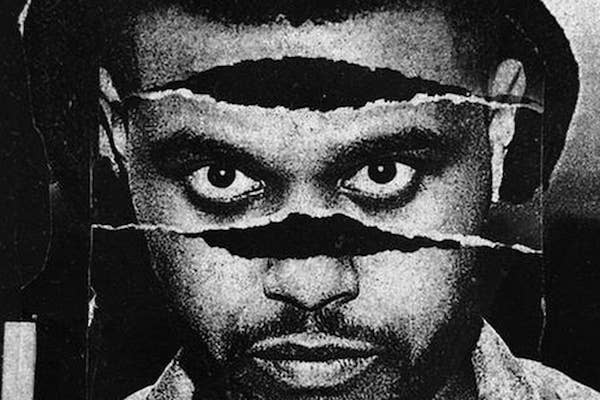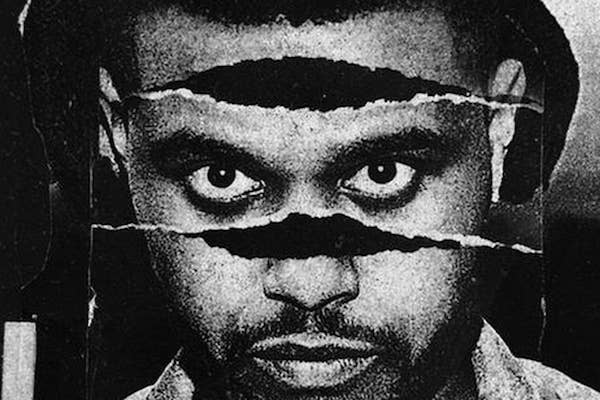
When 21-year-old Abel Tesfaye—born in Ontario to Ethiopian parents—first arrived on the music scene, not many would have predicted that his career would last this long. His early mixtapes were introverted, dark, and rewarded close listening—but they weren’t exactly made for the masses. Now 25 and on the brink of what may well be his career-defining project, The Weeknd has both R&B and pop at his feet.
He didn’t do it alone—numerous features over the past eighteen months have propelled The Weeknd onto music’s main stage. A feature on Sia’s “Elastic Heart” helped. Then Abel landed the lead single from the Fifty Shades of Grey OST, which might have slyly provided the biggest bump: “Earned It” introduced the movie’s massive, pheromone-drenched audience to a sexually charged singer amidst a movie with clear passionate intentions.
That was January 2015. The two singles that followed found The Weeknd experimenting with more accessible sounds, first on “The Hills,” then with the extravagant pop of “I Can’t Feel My Face.” The latter was premiered live during an Apple Music event, and just like that, Abel had made the leap from mixtape mystery to the mainstream, yet he did it with a song that is an extended coke reference.
The Weeknd’s vast influence as an artist can’t be understated. Within the modern “alt-R&B” category, Tesfaye deserves to be ranked alongside Frank Ocean and Miguel as an artist who redefined a genre. In this post-2010 R&B triumvirate, each artist offered something different, meaning fans didn’t have to be polarized—try as they might. Frank Ocean took us into his mind and crafted intricate, intimate stories, while Miguel explored sexuality and its relationship with rock. The Weeknd’s music, meanwhile, offers many fans an escape, a chance to forget and sink into oblivion.
But The Weeknd took some getting used to, compared to his contemporary peers. His voice lacks the strength and effortless cool of Frank and Miguel. He relied heavily on drug content earlier in his career (see: “Initiation,” “Twenty Eight,” “High For This”), unapologetically romanticizing blatantly destructive behavior. That druggy aspect has tapered off somewhat as The Weeknd moved onto bigger stages, but it hasn’t disappeared. At this point, on the brink of worldwide stardom, it’s evident that the early music was self-medication, a way of handling a drug problem by creating his own highs. It kept him free: The Weeknd came from the underground, and as such, his independence was paramount.
The early music was self-medication, a way of handling a drug problem by creating his own highs.
The first three mixtapes—House of Balloons, Thursday and Echoes of Silence—were free in the literal sense, too. Since then, he’s released two studio albums that have opened up Abel’s content, vocal range, and bank account alike. The music is as much about entertainment as it is personal expression. It happened first on Kiss Land, particularly on “Belong To The World.” By building more conventional pop songs, The Weeknd was no longer something to put on in the background—he was beginning to demand investment in his music.
But The Weeknd admits the early mixtapes weren’t what pop audiences wanted to hear. For Abel, they were a method of exorcising demons with drug-filled nights. It was upon meeting Swedish producer Max Martin (who produced the duet with Ariana Grande “Love Me Harder”) that he was encouraged to embrace pop. “At one point, I didn’t care,” the Weeknd told Rolling Stone. “Now I want as many people to hear my music as possible.” On “Tell Your Friends,” produced by Kanye West, Tesfaye touches on his youth and life since he left Toronto. It’s a track that could represent the whole album: Beauty Behind The Madness is reflective and hopeful—the scars and darkness still remain, but there’s a brighter light and positivity to be found.
Since Frank Ocean’s album has failed to materialize this summer, The Weeknd has inadvertently stepped in as King of the Summer. Now that they’re both in the realms of pop, The Weeknd has handled the role with aplomb, playing private parties and giving big-ticket interviews.
But crossing over from R&B to mainstream pop is extremely difficult, and many artists often alienate their core fanbase in the process. Tesfaye, on the other hand, had all of the necessary attributes in order to attain new fans whilst retaining his original audience.
Abel addressed the schism during a Reddit AMA in 2013: “If you’re an original fan then you will understand every decision I make,” he said. “‘Rolling Stone’ is definitely the past me talking to the present me on some Christopher Lloyd shit lol. But I feel like I’m changing the industry more than its changing me. But hey, I could be wrong.”
The reason alt-R&B became popular and mainstream is because of songs like “Rolling Stone”: unabashed, honest takes on real-life vulnerability. The Weeknd’s early brand of self-loathing and angsty R&B appealed to us on a much more personal level—we can all relate to it in varying degrees, even if we don’t want to admit it. Now he’s hit it big, just as he warned us he would three years ago on “Rolling Stone”:
So baby love me
Before they all love me
Until you won’t love me
Because they all love me
I’ll be different
I think I’ll be different
I hope I’m not different
And I hope you’ll still listen
Time is an unstoppable force, constantly destroying its own creations. We shouldn’t be surprised if The Weeknd picks up numerous statues at awards shows next year. But before you bemoan the loss of another underground artist to the bright lights and the fame, just remember he saw it coming—and asked you to love him for who he is, not for who he’ll become.

